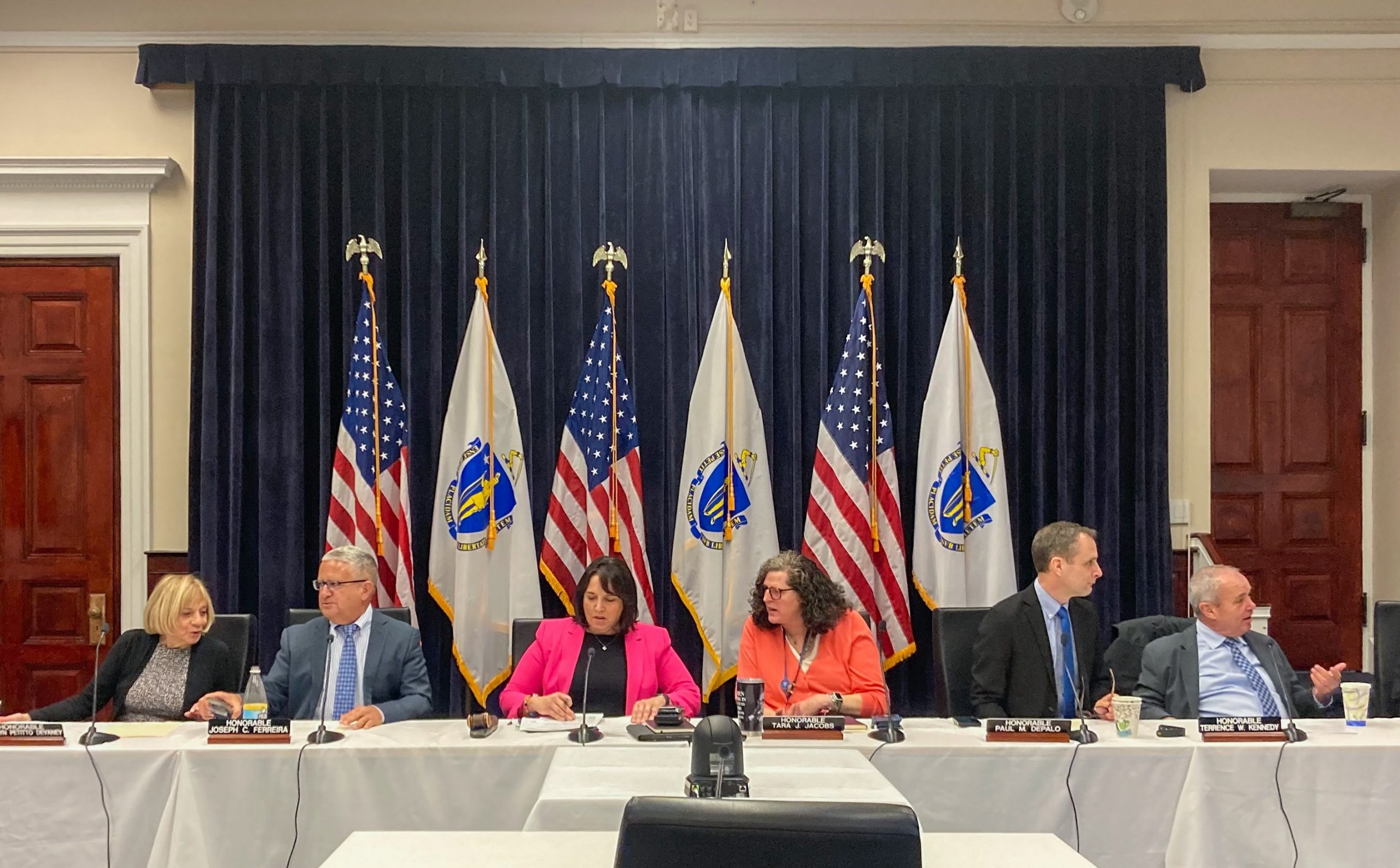The Governor’s Council unanimously approved Gov. Maura Healey’s proposal to pardon all adult marijuana possession convictions on Wednesday.

“It’s a historic and symbolic first step,” District 7 Councilor Paul DePalo said following the hearing. “It’s an acknowledgment that we were issuing punishments that were disproportionate to the crime, in the sense that they follow people throughout their lives.”
Although the blanket pardon will take effect immediately, updating criminal records will take a “substantial” amount of time, according to the hearing. Most records will be updated without required action by those pardoned, and individuals are able to request a certificate showcasing proof of their pardon by filling out an online form.
Heidi Brieger, chief justice of the Massachusetts Trial Court, said the trial court has compiled a list of approximately 22,000 adult cases containing misdemeanor cannabis possession convictions that may be eligible for pardon. The pardon applies to all “Class D substance” marijuana convictions that occurred before March 13, 2024.
According to Healey’s administration, pardoning low-level drug offenses will remove obstacles thousands of Massachusetts residents face when seeking a job, housing or education.
“Marijuana laws have significantly changed over the past decade and it’s essential that our criminal justice system adjusts with them,” Lieutenant Governor Kim Driscoll said in a press release. “Governor Healey’s proposed pardon represents an important step toward righting historic wrongs, particularly around our country’s misguided War on Drugs.”
Lt. Gov. Driscoll mediated the council hearing, during which six witnesses testified to express their support for Healey’s mass pardon proposal. Suffolk County District Attorney Kevin Hayden testified, who said the pardon promotes “fairness and equity.”
Hayden emphasized that the pardon only affects misdemeanor possession offenses and not “more serious” offenses, such as cannabis trafficking and possession with the intent to distribute.
Those charged with possession in a school zone will also be barred from receiving a pardon, Hayden said.
“I think it’s the appropriate balance,” Hayden said. “I think it’d be very difficult for us to start parsing out possession with intent to distribute cases that should be pardoned, and those that shouldn’t.”
Terrence Kennedy, District 6 Councilor, said the past charges will remain on records, alongside a notation explaining that it has been pardoned. He shared that pardoned individuals would continue to face the same barriers.
“I don’t think that this solves people’s problems, where we’re leaving this,” Kennedy said during the hearing.
Kennedy said expungement, which involves the complete removal of a conviction from a criminal record, would be an effective solution.
Under a 2018 law people can apply to expunge a cannabis possession conviction, according to the Boston Globe. But District 8 Councilor Tara Jacobs described this process as “burdensome” and “time-consuming,” and a Globe report from 2021 found that the law has helped few.
DePaulo, who said that automatic expungements are “appropriate,” emphasized the lack of public knowledge about the expungement process.
Other Councilors echoed DePalo’s concerns surrounding whether the public would be properly informed of the new pardon.
“Most people that have a marijuana conviction don’t know what’s going on in this room today,” Kennedy said. “They’re not going to be writing on a job application that they’ve been pardoned, because they’re never going to know it unless we reach out.”
Jacobs said the state has the “tools” necessary to educate the public about this new policy.
“That’s always the challenge, right? Are people even aware that this happened? … Are they going to know that they got that automatic pardon, [which] made things that they thought were barriers in their lives [removed]?” Jacobs said. “I hope the answer is yes.”
During his testimony, MA Representative Carlos Gonzàlez said this pardon will give those burdened by past convictions an opportunity to “rebuild their lives.”
“Removing collateral consequences is an act of equity and justice,” Gonzàlez said during the hearing. “By supporting these pardons we drive positive change and create opportunities for individuals to contribute to our community.”






















































































































